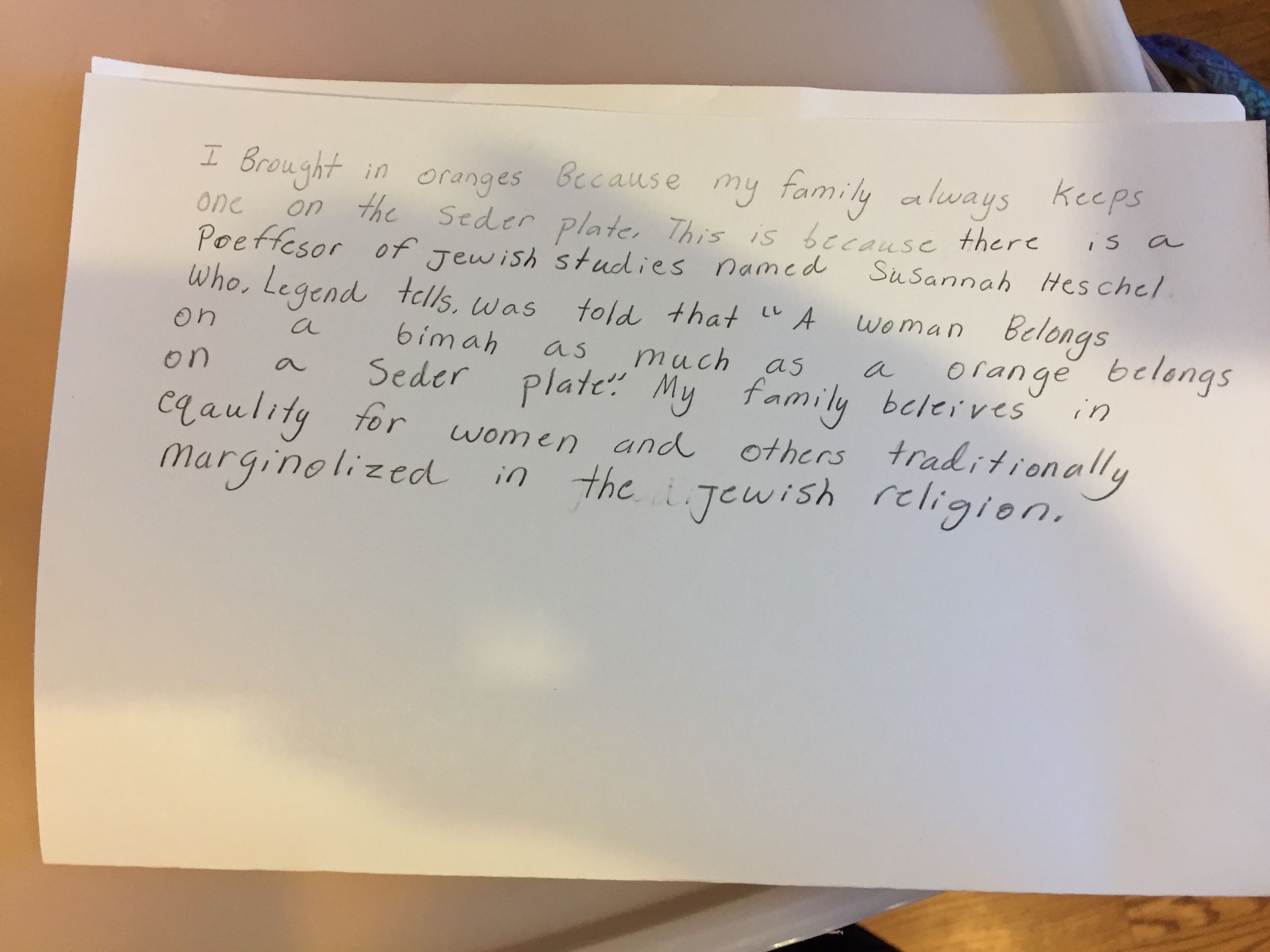About Us
Words from the Head of School
Becoming Expansive
Dear Brandeis community,
Passover is my favorite holiday in the Jewish calendar. It is, probably more so than any other single part of my Jewish experience, responsible for giving me the personal drive to continue the tradition in my adult life, with my own family. A holiday celebrating freedom is a powerful, unique thing, and in my family’s practice it was always steeped in the righteousness and shared struggles of oppressed peoples all over the world. Once I became a parent, celebrating Passover became a vehicle both for communicating the story of being Jewish and also the story of being an ethical human being in the world.
I was lucky, growing up, that our community and our family’s take on Passover was an open one. By that I mean that Kehillah Community Synagogue was actively engaged in a process of wrestling with the tradition (which, let’s be honest, is the most traditionally Jewish thing you can do), and thinking of ways to broaden the reach of Jewish practice into contemporary life. I can remember as a young boy watching my dad and stepmom work with friends in our chavurah to write, rewrite, and assemble a new haggadah for an interfaith seder, one that brought our community together with the African American Baptist community in Oakland. The haggadah spoke of freedom through the words of Moses, Dr. Martin Luther King, Jr., Nelson Mandela, and many more, and explored the shared histories of Jews and African Americans. It was a big, beautiful service, as I remember it—and as I’ve written before, that haggadah became our family’s haggadah for many, many years.
What I love about that early example that was set for me was the extremely powerful notion that our tradition is a living one, and that we each have the capacity to imagine and aid its continuing growth. That theme has remained true—as a family we have continued to wrestle with our haggadah. Sometime in the 1990s my stepmother led the charge on adding a stronger feminist narrative to our haggadah (you’ll notice that the list of luminaries above is all men), incorporating new stories, songs, and voices. Out of that reworking came a tradition that Sonia shared with her fellow third graders as part of their third grade seder, in which students were invited to share family traditions and learn about approaches to Passover from Jews around the world:
I brought in oranges because my family always keeps one on the seder plate. This is because there is a professor of Jewish studies named Susannah Heschel who, legend tells, was told that “a woman belongs on a bimah as much as an orange belongs on a seder plate.” My family believes in equality for women and others traditionally marginalized in the Jewish religion.
I love that these new ideas have become part of our family’s tradition (something we “always” do), and that Sonia and Alma and their cousins have seen us continue to wrestle with that tradition as a family, as we have rewritten the haggadah again to make it more accessible to the growing number of young people who joined our seder these past nine years.
I was thinking about the power of a living tradition, recently—its inherent hope, uncertainty perhaps, and possibility—in having a conversation with Brandeis parent Alex Austin. I had asked Alex to come in and teach me a bit about the laws around gender-neutral restrooms, as this is an area of law that Alex’s practice has some engagement with, and it’s a question that we have been talking about as a leadership team (and that we will have moving forward as a community, in thinking about what we mean by inclusivity). It was a fascinating conversation—I had not known, for example, that “non-binary” is now a legal gender category in California, or that California is one of a handful of states in which citizens can have the gender changed on their birth certificate. We spoke of supporting gender non-conforming students in our community in having a safe and authentic place to go, and in that conversation, Alex shared with me a term I hadn’t heard before: “gender expansive,” meaning someone who broadens the culture’s understanding of gender expressions, norms, and roles. We talked about the value of language that is positive rather than negative in its orientation to identity. I love how the term gender expansive speaks to both our expanding vocabulary and understanding of what is possible in the human experience. I am glad and humbled to be living in a moment when we are so actively engaged in a process of wrestling with our language and our understanding of humanity, and that—as Alex put it—we are finding “new ways to give people their truth.”
In our conversation, Alex shared the story of writing a college essay about the Albert Camus quote “Freedom is the right not to lie.” That is a powerful kind of freedom, and one I would wish for my own children and all of our students at Brandeis. It makes me wonder, as well, about the freedom not to be lied to—or the freedom to have the capacity to know the difference between truths and lies. These are freedoms I hope we can offer our students in their time at Brandeis, and beyond. And this Passover, I am feeling truly grateful for the truth of growth, of learning, of becoming expansive in our understanding of our tradition and language, of ourselves and each other, and of our world.
I wish you all many freedoms and much growth, and a restful and joyous Passover, my friends.
Warmly,
Dan

655 Brotherhood Way | San Francisco, CA 94132 | p: 415-406-1035 | f: 415-584-1099










